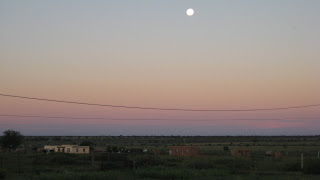
This weekend I was reminded that though I live in a relatively peaceful country, the rest of Africa can be brutal.
“[The rebels – Lord’s Resistance Army] would come into the mission and say, I want food. You had to give them food. They would kill you otherwise and take your food. If they saw you had a car they said give me the keys to your car and I will let you keep your lips. There would be times when you would see a beautiful woman who had her lips cut off and you knew that this wasn’t just a threat.” He went on to describe other atrocities that I would not like to post online. The conversation had not started like this, it was I who asked him about his experiences in Uganda.
“Do you see these scars?” He said, showing me marks on his legs. “These are from bullets in Uganda. We were praying rosary when raiders came and started shooting. One of the women with me was shot through the buttocks. I crawled on hands and knees through thorns.” He paused to examine his hands. “The wounds from the thorns have since healed. I don’t remember how I ended up in my bed, just remember the gunfire and crawling, but somehow I made it there. Luckily no one was killed. The bishop allowed me to rest for a week to recover.”
Yet despite having survived this, he expressed a joy in life that was infectious. His eyes would sparkle and a genuine smile would illuminate his face, his white teeth seemingly illuminated in his dark face. His faith was in God and in people, and he truly embodied the African spirit of Ubuntu, that you are a person, and as a person he respects you, he radiated the feeling of mutual respect for one another. I was his guest at the mission and we talked as equals. As we are both aid workers, we shared our frustrations with the work and also what kept us motivated to do the work we did. It was inspiring to be with those two, sharing stories
On the way back to my own site, I sat in the car next to man who I could tell was not a Tswana. In his hands was a magazine with a script that looked closer to Arabic that anything I had seen in South Africa. We got to talking and I learned that he was an Ethiopian political refugee. Naturally, I was curious and attempted to be discreet in asking as to the reasons for fleeing his country and he went on to explain that it was locked in conflict, whether internal, or with Eritrea. He told stories of hitchhiking, running, and waiting on his long trek from Ethiopia to South Africa. He told of those in his group who were eaten by lions in Kenya, others who were left behind, others who didn’t make it.
Regardless of this, he wanted to pay for my taxi fare. I was humbled, feeling selfish, a little guilty for having it so easy in my life. I felt at fault for my initial disbelief. The atrocities that were so easy to dismiss in literature was now face to face with me, a dark undercurrent to the continent, a continent scarred over and over again, but a continent which somehow through it all has maintained an infectious, almost spontaneous joy. People who are genuinely happy to see you, who will stop time for you, because you are a person. Not all Africans are like this, but it is incredible to see this survive in the face of such atrocities.
p.s. If you click on the picture, you should be able to see a baboon running away from me.









